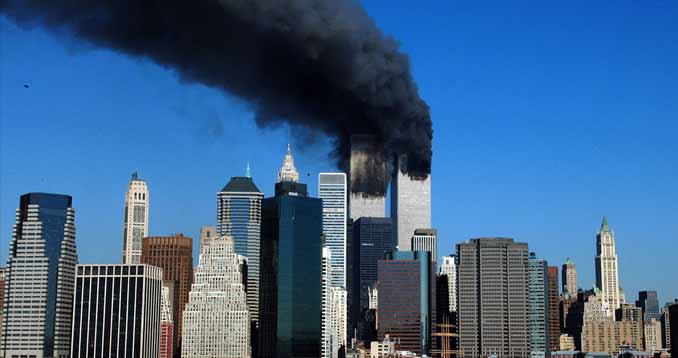

President Joe Biden signed an executive order Friday allowing $7 billion in frozen assets from Afghanistan’s central bank to eventually be distributed inside the country. The money is to be transferred and held in a consolidated account at the Federal Reserve Bank of New York. The remaining $ 3.5 billion, which is the other half of the reserves, to potentially fund litigation brought by families of victims of the September 11 terror attacks.
How this decision was made and the executive order issued by the President of the United States from different angles requires analysis, which is discussed below:
First, the Verdict
The issue of allocating half of Afghanistan’s foreign exchange reserves to the victims of 9/11 and allocating the other half to help the people and the economy of Afghanistan, as stated in Biden’s executive order, requires the court’s approval. Until then, no one, including the US government, the current rulers of Afghanistan, the people of Afghanistan and US financial institutions, will have access to these reserves. This complex legal process may be time consuming as it depends on the court ruling.
Second, the Conditional Release of Foreign Exchange Reserves for Humanitarian Assistance
If the court agrees to release $3.5 billion of Afghanistan’s foreign exchange reserves to address the economic problems of the people of Afghanistan. In this case, the money will not be delivered to the current rulers in Afghanistan. This will happen if the United States recognizes the current government in Afghanistan by then. Furthermore, according to the Central Bank of Afghanistan, these funds cannot be used for public purposes, government budget deficit financing, government lending, infrastructure projects or other humanitarian issues. According to the central bank law, the bank can use these reserves only to implement monetary policies, intervene in the foreign exchange market, pay foreign currency debts and finance the balance of payments deficit. Although the current government in Afghanistan has not been recognized by the international community, no country or international body, including the United Nations, has the authority to voluntarily spend Afghanistan’s foreign exchange reserves for humanitarian purposes.
Third, a Complicated Legal Process
The United States is currently the custodian and trustee of the Central Bank of Afghanistan. Afghanistan’s foreign exchange reserves, which has now become a legal dispute between Afghanistan and the United States, needs to be resolved by an impartial international tribunal. Therefore, the one-sided approach to this legal case calls into question the impartiality of the legal and judicial process. Moreover, there is currently no lawyer for the people of Afghanistan in the United States to represent them in court and defend their property. The people of Afghanistan have the right to a lawyer to defend themselves under international law.
Fourth, Confiscation of Al-Qaeda’s Assets
According to official statements and reports by the US government, the 9/11 attacks in that country were planned and carried out by the al-Qaeda network. However, these foreign exchange reserves belong to the people of Afghanistan. The citizens of Afghanistan have not only had no involvement in the 9/11 attacks, but have themselves been the great victims of terrorism and have paid a heavy price in the fight against terrorism over the past twenty years. Therefore, if compensation is to be paid to the survivors of the victims of the 9/11 terrorist attacks, the assets of al-Qaeda as the perpetrator of the attacks and Saudi Arabia as a country hosting the facilitators must be deducted.
In addition, the leader of the al-Qaeda network was killed on Pakistani soil, and therefore, the country is also involved in this case. Pakistan must also pay compensation as a supporter and provider of a safe haven to Osama bin Laden. It would be unfair for the people of Afghanistan to be both the main victims of terrorism and to pay the price for the attacks of the al-Qaeda network and the citizens of Saudi Arabia. This asset did not exist at the time of 9/11 and was not accumulated during that period. Furthermore, this money is not the property of the al-Qaeda network, nor are the current rulers the owners of that money. This asset has been accumulated by the Central Bank of Afghanistan within the framework of the Republic under the direct support of the United States of America and has nothing to do with al-Qaeda and the ruling regime.
The 9/11 attacks were carried out by al-Qaeda – all Saudi nationals. It logically requires that any compensation, if any, be paid to the survivors of the 9/11 victims, from the frozen assets of al-Qaeda and the country whose citizens carried out the attacks. Pakistan, as a safe haven for Osama bin Laden, the mastermind of the 9/11 attacks, must also contribute to the compensation. The people of Afghanistan have been the biggest victims of terrorism in the last 20 years since the 9/11 attacks. They have fought against international terrorism. As the fate of the defenseless nation of Afghanistan changes with the Doha Peace Agreement and the escape of Ashraf Ghani, they deserve justice in their assets.
Any injustice in this process casts doubt on the intentions of the US government, which once fought alongside Afghanistan’s people against terrorism and paid a heavy price for it. The US government is expected to reconsider the decision. Given that the assets belong to the people of Afghanistan and have nothing to do with the 9/11 attacks and the previous governments and the current Afghan system, the US must address the concerns of the people of Afghanistan as the biggest victims of regional and international terrorism. Any unjust and unjustified allocation of these foreign exchange reserves will not have any positive consequences other than making Afghanistan’s economic problems more and more complicated.
News Source – Hasht-e Subh Daily

Leave a Reply